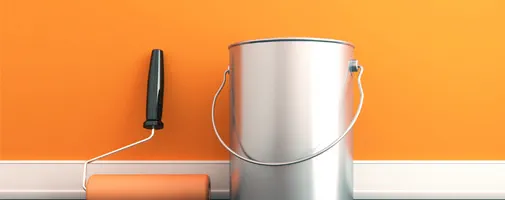
If you lack the cash on hand to finance all of your life’s major expenses, applying for a home equity line of credit (HELOC) can help you use the equity in your home to cover costs. One of the biggest benefits of using a HELOC is that interest rates tend to be lower than those for many other forms of credit. And who doesn’t want to save money?
Another benefit of a HELOC is that unlike a home equity loan, it enables homeowners to spend only what they need. For example: When you take a $10,000 home equity loan against your house, you’re responsible to pay back the entire amount, even if you only use $8,000. This makes a home equity line of credit a less expensive way to pay for projects that may come in under budget or multiple projects that don’t need to be funded all at once. Lines of credit let homeowners borrow as they go and pay interest on only what they’ve used.
Most homeowners use HELOCs to repair or improve their homes, pay off higher-cost mortgages, consolidate debt, finance higher education, pay for large events like a wedding, or simply as a safe cushion.
What Can I Use a Home Equity Line of Credit For?
Using a HELOC for Home Improvements
One of the best uses for a HELOC is to make improvements and upgrades to a home, either to keep pace with a family’s changing needs or to increase the resale value.
Maybe a homeowner needs to build an addition to help fit their growing family. Perhaps a dated kitchen is an eyesore from the ‘70s that needs to go. Maybe energy-efficient upgrades could lower utility bills. In any case, large home improvement projects come with a huge price tag. As a lower-rate credit option, a HELOC can help minimize these costs.
The other benefit of using a HELOC to make home improvements is that the money is directly re-invested in the value of the home. Although tax laws changed in 2018 to disallow the deductibility of home equity interest payments for most purposes, homeowners can still deduct the interest they pay each year on a HELOC if the borrowed money goes toward improving their home. The IRS allows interest deductions on up to $750,000 or $1 million in total mortgage borrowing (including a primary mortgage and home equity loan), depending on when taxpayers took out their loans and their filing status. Please consult a tax specialist to learn about the deductibility of interest and charges.
Using a HELOC to Pay Off Your Mortgage
Using a HELOC to pay off a primary mortgage is essentially a form of refinancing. It could allow homeowners to reduce their interest rate without the closing costs associated with a home refinance loan. This may be a good fit for you if you have more equity than debt in your property and if you can get a lower rate on a HELOC than you have on your mortgage. It’s particularly beneficial if you have enough equity to also make improvements on the home. In that case, you can wrap up your purchase financing and improvements financing into one low-cost, flexible loan package for both convenience and potential cost savings.
Using a HELOC to Consolidate Debt
Student loans, credit cards, auto loans: Homeowners who owe a variety of creditors can pay off those debts with a HELOC. This reduces the number of bills and payments and may reduce interest costs, as well. HELOCs generally have lower rates than some of these other loans, such as credit card balances.
Consolidating debt under one loan can help clean up a homeowner’s credit score and lighten the burden of having many creditors and high interest rates, but it should be done with the guidance of a financial planner, like one of our specialists at Bethpage. They can help you determine if this makes good sense for you right now.
Using a HELOC for Funding College Education
Higher education is an investment that you make in yourself or your child. It can increase earning power or enable a child to become an independent adult.
There are a number of available options for financing college, including student loans. It’s important to compare student loan interest rates and repayment options to those available with a HELOC to see if this might be a better path for you. If so, you could borrow money through your HELOC to make tuition payments when they are due and pay off the debt over your repayment period.
Also, because HELOC funds can be used at a homeowner’s discretion, they can pay for incidentals like books, clothing and other expenses that pop up along the way.
Using a HELOC for Paying for a Wedding (or Other Celebration)
Weddings may be beautiful, but they’re not cheap. A HELOC can be a solution for brides, grooms and their parents to access the necessary money to plan a perfect wedding. The pay-as-you-go system is great when there’s a chance of spending less than anticipated.
It’s important for homeowners to operate within a budget when they use HELOC funds to pay for a one-time event. While home improvements may earn a return on investment, they’re unlikely to see a return on event expenditures. But the wedding photos? Priceless.
Using a HELOC for Emergency or Retirement Savings
Ideally, everyone should have enough money in an emergency savings fund to cover three to six months of expenses, and enough in their retirement fund when they retire to cover all their expenses for life. However, reality is often anything but ideal.
Having the backup of a HELOC as a cushion can be comforting. If you suddenly find yourself in a frightening situation, like losing your job or facing a major health challenge, you don’t want the added stress of worrying about money. If you never have to use your HELOC to cover expenses, that’s great! You won’t have to pay anything for having it available. If you do need it, you’ll be glad, and you’ll only have to pay interest on the amount you actually need.
Is a HELOC Right For You?
Anyone considering using a HELOC for these or any other purposes should weigh the benefits and potential risks carefully. It can be a good way to access cash, but it may not be the best option for everyone.
HELOC Pros
- Borrowing flexibility – Borrow as much as you need — up to the loan limit — when you need it.
- Spending flexibility – The cash from a HELOC can be used for any purpose.
- Low or no closing costs
- Low interest rates – HELOCs are secured by the equity in your home, making them generally less expensive than unsecured loans, and their adjustable rates tend to be initially lower than fixed rates on other loan types.
- Interest compounds only on the amount used – Plus it compounds only from the date the funds are withdrawn, unlike a home equity loan which charges you interest on the entire sum from day one.
- Repayment options – A period of interest-only payments during the borrowing period is followed by a long-term repayment period. Some lenders allow you to convert a portion to a fixed rate.
HELOC Cons
- Home value fluctuation – A poor housing market or damage to your home could lower the value of your home, leaving you at risk of owing more on your loan than your property is worth.
- Borrowing limits – Lenders generally allow homeowners to borrow up to 70-80% of their equity, although this can vary. This may or may not be enough to meet your needs, especially if your equity level is relatively low.
- Risk of default – While having your loan secured by your home definitely has benefits, failing to repay a secured loan puts your assets at risk. To protect your home, monitor your spending carefully and make sure you can afford the payments on top of your regular mortgage.
Bethpage Federal Credit Union HELOCs
Learn more about a Bethpage Federal Credit Union HELOC and see our current rates here.
Our Bethpage specialists can sit down with you to determine whether a HELOC is the right solution for your credit needs in the near or distant future, based on your personal situation. To find your individual answers and see how much you qualify for, contact us.
If you’ve finished your research and are ready to move forward, filling out our quick application is the first step to accessing the cash you’ve built up in your home.


